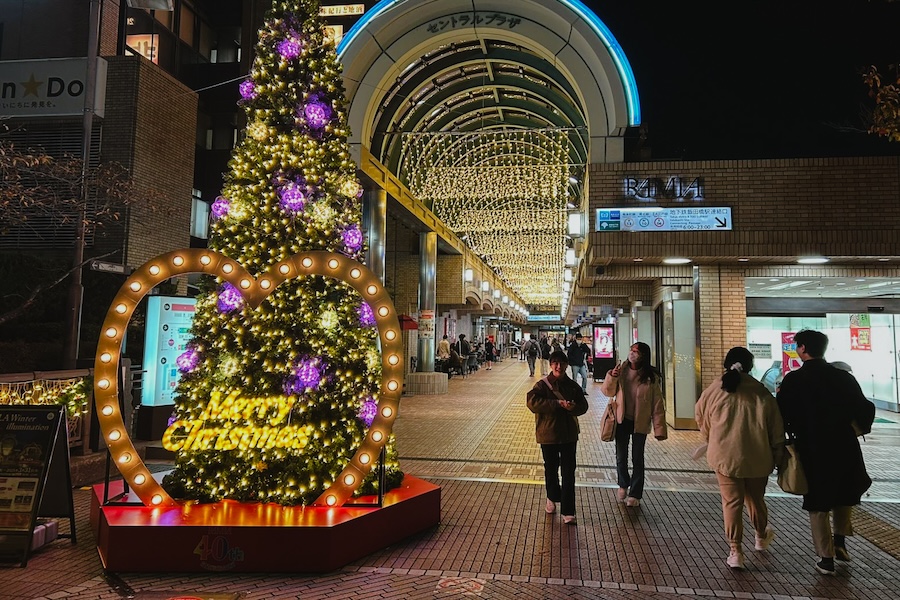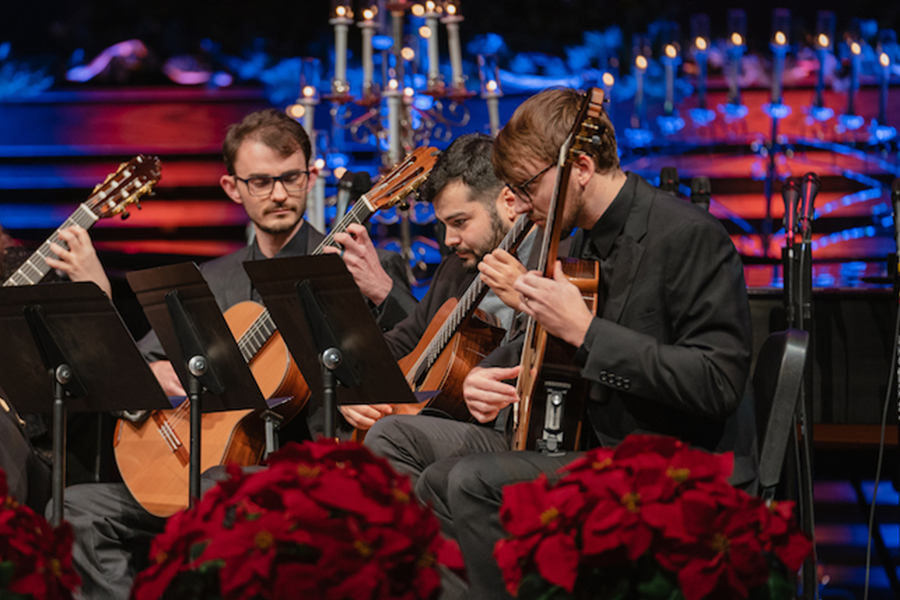Despite difficulty, student embraces divine appointment

When Master of Divinity student Neil Langston offered to give a fellow student a ride to a local government office over fall break, he had no idea that a divine appointment awaited him. As Langston joined his friend in the office, a full room with no available seating greeted him, so he retreated to a nearby hallway. Noticing two security guards at the end of the hall and sensing the prompting of the Holy Spirit, Langston breathed a word of prayer for the anointing and direction of the Holy Spirit and decided to embrace this as an opportunity to share the Gospel.
As he concluded his prayer, one of the officers approached Langston, and though Langston was eager to share, he was instead met with a disappointing directive from the guard: “The owners of this building say no one can stand in this hallway.” Though Langston had hoped to evangelize the guard or to stay with his friend in the waiting room, the only option he was given was to wait outside.
Langston was discouraged, thinking he had missed an opportunity to share, but he was quickly greeted by another man waiting outside. After making eye contact with the man, Langston engaged him in conversation.
“Do you know they just kicked me out of that hallway?” he said. The young man, whom Langston would later come to know as Michael, expressed similar frustration.
“They wouldn’t let me wait in there either,” he told Langston. “I’ve been waiting for two hours to see someone.”
Sensing Michael’s frustration, Langston sought to refocus the conversation, first by noting the pleasant temperature, then by asking Michael a piercing question: “If you were to die tonight—not that I would want that, but we know everyone will die at some point—would you know for sure you would go to heaven?”
Hesitantly, Michael answered, “I want to, but I’m not sure I could. The decision is not up to me; it’s up to God to decide.”
Hearing the hopelessness in Michael’s words, Langston quickly affirmed his statement; that it was indeed up to God. He then offered Michael an opportunity to have everlasting hope in Jesus.
“The only way we can know for sure that we’ll go to heaven when we die is if we repent of our sins and accept Jesus as our Savior,” Langston told him. Using verses of Scripture like John 3:16 and Romans 6:23, Langston explained God’s love for Michael shown through Christ’s sacrifice on his behalf, and he made clear Michael’s need to repent of his sins and believe in the Gospel.
As the conversation drew to a close, Langston paused to ask Michael if he understood what had been shared with him. At that moment, Michael boldly proclaimed, “I believe that Jesus died for my sins. I believe He rose from the grave.” Beaming with excitement, Langston proceeded to lead Michael in a sinner’s prayer wherein he repented of his sins and placed his hope and trust in Jesus as his Savior.
Not content to leave the conversation there, Langston offered an additional word of encouragement to Michael. Having recently watched online evangelism training videos by Southwestern Ph.D. student Jonathan Baldwin (see here), Langston used his final moments with Michael to employ what the videos had taught him with regard to discipleship. He explained to Michael the Great Commission of Jesus in Matthew 28 and encouraged him to take a further step of obedience to Jesus by learning and obeying His commands.
As they prepared to part ways, Michael told Langston, “I feel it. I feel what He did here.”
Though crowded waiting rooms, unfriendly regulations, and insistent security guards initially greeted Langston, all of these interactions were directing his path toward Michael. Michael was waiting for answers to earthly questions, but he found an answer to his eternal problem in the person of Jesus Christ and a relationship with Him.



